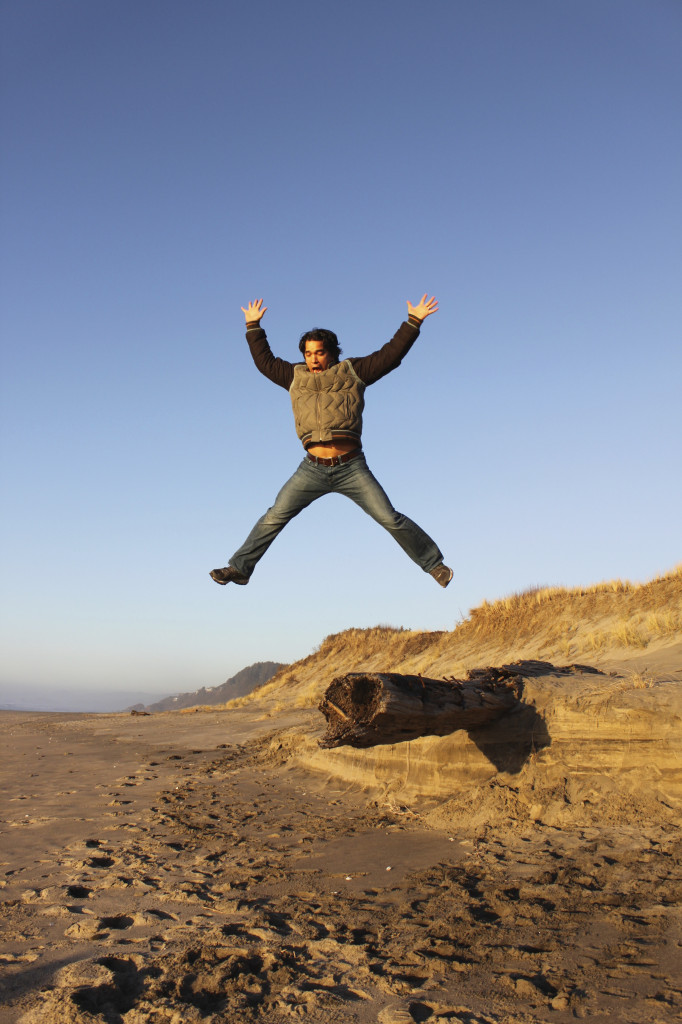While rarely front and center in media coverage of all things green, people of color are an essential and growing part of the environmental movement. Meet three people—a journalist, a scientist, and a leadership developer—who are leading the charge. All three are dedicated educators, passionate conservationists, and avid nature-lovers, and they want people of every color to experience both the deep joy and the great responsibility of stewarding God’s creation.
 Marcelo Bonta is the founder of the Environmental Professionals of Color and the Center for Diversity & the Environment, where he works with leaders and environmental institutions to include diversity, equity, and inclusion in the foundation of their work. He is also an Environmental Leadership Program Senior Fellow and a TogetherGreen Conservation Fellow.
Marcelo Bonta is the founder of the Environmental Professionals of Color and the Center for Diversity & the Environment, where he works with leaders and environmental institutions to include diversity, equity, and inclusion in the foundation of their work. He is also an Environmental Leadership Program Senior Fellow and a TogetherGreen Conservation Fellow.
Growing up in Sacramento, Calif., with parents who were active with both the United Farm Workers and the civil rights movement, Bonta learned early to stand for justice. His mother, a Filipina immigrant, taught him to appreciate diversity and opened his eyes to the need to empower the powerless. His affinity for living with wildlife and his passion for protecting nature led him to work on biodiversity conservation, land use, and policy issues early in his career, working for groups like the National Park Service, Defenders of Wildlife, and Massachusetts Audubon Society
“American society is in the middle of a paradigm shift, where racial equity and environmental protection are becoming more inextricably linked.”
– Marcelo Bonta
What do Christians most need to understand when it comes to care of God’s creation?
Bonta: God gifted us with his creation all around us—beautiful landscapes, air, water, land, animals, plants—and people (Genesis 1). I think it’s important for Christians to pray—to be thankful for the abundance he has provided us and to ask God what their role is in being responsible stewards of creation.
When I asked for—and opened myself to fully trusting in—God’s direction for my life, he pointed me towards starting a new organization, the Center for Diversity & the Environment, and guided me to protect his creation. I realized that we cannot as a society successfully protect nature and our environment unless we protect people as well. Hence, my definition of God’s creation includes animals, plants, habitats, and people, because we cannot separate the intersections or the reliance we have on each other. We are all linked in the web of creation, and I believe it is important for each of us to discover our niche and to utilize our God-given talents and gifts for taking care of his creation.
Who are your most valuable allies when it comes to creation care?
Bonta: People of color. With God’s grace, I started the Center for Diversity & the Environment in 2008 to be a vehicle for change. The organization serves to racially and ethnically diversify the US environmental movement by developing leaders, diversifying institutions, and building community. Mainstream environmental organizations in the US are anywhere from zero to 11 percent people of color; that’s a far cry from what is reflected in the general population, which is about 36 percent people of color and will grow to 50 percent by 2043, according to the US Census Bureau.
Meanwhile, numerous polls and surveys show overwhelming support for environmental issues among people of color. For example, a poll commissioned by the Nature Conservancy in 2009 showed that voters of color are concerned about global warming, pollution, and habitat loss at up to 20 percent higher rates than whites and are more willing to pay for solutions. The poll further concluded that “communities of color in America are some of the most dedicated supporters of conservation.”
In addition, diversity and the ability to bring together and engage diverse voices, experiences, approaches, and backgrounds have shown to be a key to innovation, which is what the environmental movement badly needs. Organizations and efforts led by people of color are at the forefront of environmental innovation. They often provide multiple benefits—integrating economic development and opportunity, health benefits, equity, and/or community empowerment with environmental protection.
For example, Green for All, founded by Van Jones, has helped shift the mindset from the idea that protecting the environment eliminates jobs to protecting the environment creates jobs (and in the process can lift people out of poverty). The June Key Delta Community Center in Portland, Ore., created by an African American sorority (Delta Sigma Theta) alumni chapter, is one of the first sustainably constructed “living buildings” west of the Mississippi. Groups like Verde and Sustainable South Bronx are leading the way in creating sustainable neighborhoods. Growing Power, led by Will Allen, is redefining urban agriculture and what it means to grow your own food and lead a healthy lifestyle.
If you could change one thing about the environmental movement in this country (or globally) what would it be?
Bonta: When the environmental movement intentionally and meaningfully includes voices of all, especially uplifting the voices of the oppressed, they will not only start winning again, but the sky’s the limit in what they can achieve and how success will be defined.
Who do you most desire to reach out to in your work and why?
Bonta: Environmental leaders, people of color, and environmental funders. American society is in the middle of a paradigm shift, where racial equity and environmental protection are becoming more inextricably linked. I have observed and experienced, especially over the past five years, a desire for environmental leaders and mainstream environmental groups to be more diverse, equitable, and inclusive. I also have observed environmental innovation stemming from efforts led by people of color, and social justice and organizations of color are creating programs and strategies to effectively address climate change and environmental protection.
Lastly, environmental funders, especially foundations, have a strong role to direct policies and practices by committing significant funds to efforts and projects that will create an environmentally protected society for all. The lines are blurring more everyday, and it’s exciting to be working at the forefront of helping mold a future environmental movement truly for all.❂
Meet Audrey Peterman and Stefan Moss.


